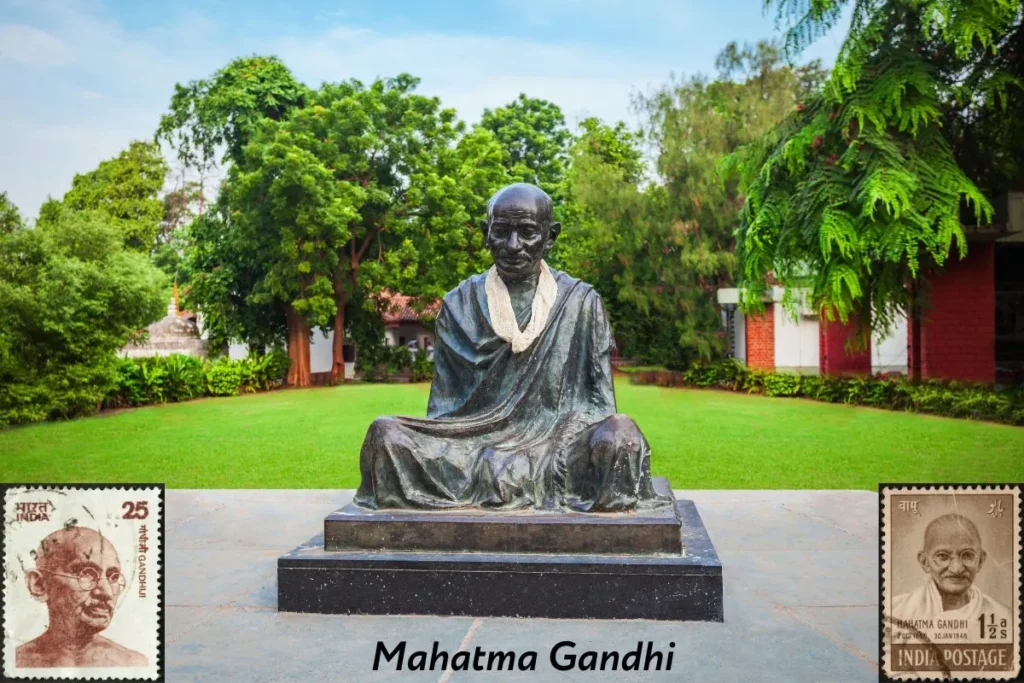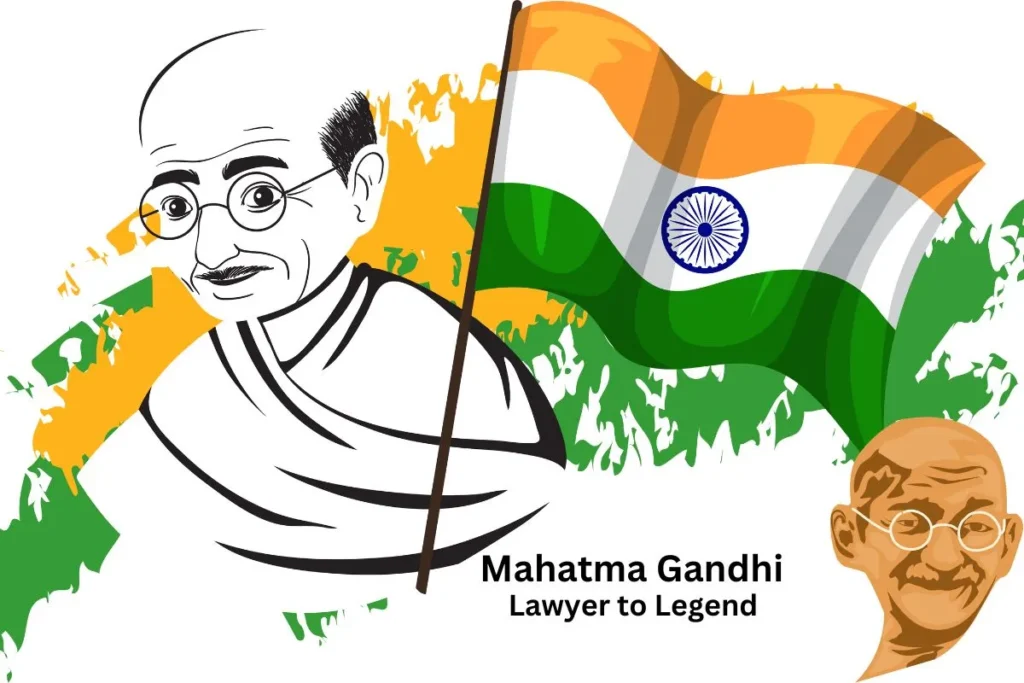Table of Contents
ToggleThe Soulful Rebel: Mahatma Gandhi's Journey from Lawyer to Legend

From Lawyer to Legend: The Rise of a Soulful Rebel
Popularly known as Mahatma Gandhi, Mohandas Karamchand Gandhi, the name itself whispers of change, of a nation reborn, of a philosophy that shook the foundations of empires. Yet, before the title “Mahatma” adorned his shoulders, he was a young lawyer, stepping onto the shores of South Africa, unaware of the journey that awaited him.
Early Life and Influences: Seeds of Satyagraha
Born in 1869 in coastal Gujarat, India, Gandhi’s early life was steeped in the values of Hinduism and Jainism. The ideals of nonviolence and tolerance took root in his young mind, seeds that would later blossom into his revolutionary philosophy of Satyagraha, meaning “truth force.” At 19, he sailed to England to study law, only to encounter the harsh realities of racial prejudice in a colonial world. This experience became a crucible, igniting a spark within him: a burning desire to fight for justice and equality, not with fists, but with the unwavering strength of his convictions.
From South Africa to India: Forging the Weapon of Truth
Returning to India in 1893, Gandhi faced the stark reality of British rule. In South Africa, where he sought to earn a living, he witnessed the brutal discrimination faced by indentured Indian laborers. This became the testing ground for his nonviolent activism. He led strikes, organized protests, and courted imprisonment, all while adhering to his principles of Satyagraha. Ahimsa, nonviolence, was not a sign of weakness but a fierce moral stand against injustice.
Wielding the Charkha: Gandhi’s Iconic Campaigns for Freedom
By 1915, Gandhi returned to India, a seasoned leader, ready to confront the behemoth of British colonialism. He found fertile ground for his ideas in a nation yearning for freedom. From the Non-Cooperation Movement that shook the foundations of British rule to the Salt March, where he led thousands on a defiant walk to the sea to defy the salt tax, Gandhi’s campaigns were masterclasses in mass mobilization and peaceful resistance. He used simple acts, like spinning khadi, the homespun cloth, to challenge the economic might of the empire and empower rural communities.
Non-Cooperation Movement: Challenging the Colonial Colossus
In 1920, Gandhi launched the Non-Cooperation Movement, a nationwide campaign to boycott British goods, institutions, and services. With mass civil disobedience, strikes, and boycotts, he aimed to cripple the British Raj from within. This movement galvanized millions of Indians, uniting them under the banner of Swaraj, self-rule.
Salt March: A Walk for Freedom, a Pinch of Defiance
In 1930, Gandhi led the iconic Salt March, a 240-mile trek to the coastal town of Dandi to make salt, defying the British monopoly on this essential commodity. This simple act of defiance resonated across the globe, symbolizing India’s yearning for freedom and Gandhi’s unwavering commitment to nonviolent resistance.
Quit India movement: Demanding Independence, igniting Resistance
In 1942, with World War II engulfing the world, Gandhi called for the “Quit India” movement, demanding immediate British withdrawal from India. Fueled by the frustration of India’s war contribution without a promise of freedom, and sensing an opportunity during Britain’s global struggles, Gandhi delivered his fiery “Do or Die” speech, urging mass civil disobedience. This movement sparked nationwide protests, strikes, and acts of sabotage, bringing the country to a near standstill. While Gandhi and thousands of other leaders were swiftly imprisoned, the movement’s spirit lived on, paving the way for India’s eventual freedom.
Beyond Borders: A Legacy that Spans the Globe
Gandhi’s impact transcended the confines of India, his message of nonviolence reverberating across continents and inspiring countless social justice struggles.
Inspiring Generations: From Martin LUTHER King Jr. to NELSON Mandela
From Martin LUTHER King Jr.’s Civil Right movement in the United States to NELSON Mandela’s fight against apartheid in South Africa, Gandhi’s principles served as a guiding light for many. King embraced SatyagrahA, leading nonviolent protests and marches for racial justice, while Mandela adopted civil disobedience tactics to dismantle the oppressive apartheid system. Through their own unique struggles, these iconic figures carried the torch of nonviolent resistance ignited by Gandhi.
A Beacon of Hope in a Divided World: Relevance in the 21st century
Even in the turbulent 21st century, Gandhi’s message remains relevant. In a world grappling with conflict, inequality, and environmental degradation, his unwavering belief in peace and justice offers a potent alternative to violence and despair. From advocating for nonviolent conflict resolution in global disputes to inspiring grassroots environmental activism, Gandhi’s principles continue to offer hope for a more equitable and harmonious world.
A Life cut short, a voice unbound: Remembering the Mahatma
Tragic Assassination: A Martyr’s Fall, a Message Enduring
On January 30, 1948, tragedy befell India as a Hindu nationalist, Nathuram Godse, assassinated Mahatma Gandhi during his evening walk. While the world mourned the loss of this iconic leader, his message of nonviolence became even more powerful. In his final breath, Mahatma Gandhi uttered “Rama, Ram,” signifying forgiveness and a reaffirmation of his unwavering faith in truth.
The Charkha Spins On: Gandhi’s Eternal Legacy of Hope and peace
The charkha, the spinning wheel that symbolized self-reliance and nonviolent resistance, continues to spin, a testament to Gandhi’s enduring influence. His life and teachings remain a beacon of hope for a world yearning for peace, justice, and human dignity. In the countless acts of nonviolent resistance across the world, in the echoes of his timeless words, and in the spirit of millions who continue to fight for a better tomorrow, Mahatma Gandhi’s soul lives on, a testament to the transformative power of truth and nonviolence.
